The University of Chicago Press, Chicago 60637
The University of Chicago Press, Ltd., London
1987 by The University of Chicago
All rights reserved. Published 1987
Paperback edition 1988
Printed in the United States of America
06 05 04 03 02 01 00 99 98 8 9 10 11
Library of Congress Cataloging-in-Publication Data
Herodotus.
The history.
Includes index.
1. History, Ancient. 2. GreeceHistory.
I. Grene, David. II. Title.
D58.H4713 1987 930 86-13635
ISBN 0-226-32770-1
ISBN 0-226-32772-8 (pbk.)
ISBN 978-0-226-32775-4 (e-book)
 The paper used in this publication meets the minimum requirements of the American National Standard for Information SciencesPermanence of Paper for Printed Library Materials, ANSI Z39.48-1992.
The paper used in this publication meets the minimum requirements of the American National Standard for Information SciencesPermanence of Paper for Printed Library Materials, ANSI Z39.48-1992.
The History
Herodotus

TRANSLATED BY
David Grene

The University of Chicago Press
Chicago & London
To Wendy
Contents
List of Maps
Acknowledgments
I have given a great many classes and tutorials on Herodotus History over the years. Indeed, he has been a lifelong interest of mine. But since I undertook this translation, four years ago, I have read him more constantly with students than ever before. I therefore very gratefully acknowledge what I owe to the graduates of the Committee on Social Thought who took part in those discussions of the text, from 1980 on, at the University of Chicago.
I wish also to express my gratitude for the opportunity to express my views at Northwestern Universitys Wallace A. Bacon Conference on Interpretation in 1981, where I gave the inaugural lecture, entitled Herodotus: The History and Its Presentation, and I am very grateful, too, to Virginia Hastings Floyd, who generously furnished funds for its subsequent publication.
During two of the past four years in which I have been engaged in the work of translating Herodotus I have received valuable financial help from the Earhart Foundation, for which I am extremely grateful. I am glad to recognize especially the kind interest of Richard Ware and Anthony Sullivan, who at different times were responsible for granting me these funds.
My friend Arthur Adkins tirelessly advised me on the nuances of Greek idiom when I consulted him, and, besides this, he and my friend and former student Tony Yu read large portions of the completed manuscript and helped me with criticism and praise.
My indebtedness to the fine two-volume Commentary on Herodotus by W. W. How and J. Wells (first published in 1912 by Oxfords Clarendon Press and reprinted many times since) will be evident to the reader in the footnotes to my translation. I am grateful, also, to Harvard University Press for permission to reprint the maps that appear in the Loeb Library edition of Herodotus and for permission to use an abridged version of the Index that appears in the Loeb edition.
Finally, and most importantly, I acknowledge with delight all that the participation of Wendy OFlaherty in this book has meant to me; in the four years of preparing this English Herodotus I owe far more to her than anyone or anything else. It was not only that she made perfect typescripts of my messy drafts. That in itself was a tremendous labor, of a value not easy to assess, for a clean copy stimulates one to see clearly where the style and the vocabulary are headed. But that big job is the least of what she has done. She has again and again seen where the English faltered or was obscure. Her sense of the spoken word has helped immensely in a text that originally was intended largely for reading before its contemporary Greek audience. Last and most important, she has grown to love Herodotus History and the writer it reveals, and her feeling for him has illuminated and deepened my own. I have dedicated this book to her as a token of some part of all that she has given me.
Introduction
Herodotus only slightly younger contemporary, Thucydides, rejects the historical account of remote events in very telling terms; he does so at about the date of Herodotus probable death. Thucydides says that even such a careful (and barely sketched) account as he is forced to give of an earlier Greece, as background for his own times, is only moderately satisfactory. For, he says, most of the events of the past, through lapse of time, have fought their way, past credence, into the country of myth (perhaps the Greek epi to muthdes eknenikkota in Thucydides 1.21.8 is fairly translated as this). Thucydides conceived of acts and even words and thoughts as existent at a given moment and ideally recapturable in that form. They will, if allowed to do so by the lapse of time, become transfigured and so be useless to history. The word eknikanfight its way through completelyimplies that there is a natural tendency in the event so to do, and the perfect participle looks at the finished product: they have got to the country of myth and there they stay.
Thucydides preference for contemporary history as the only likely true history is to be followed, with few exceptions, for centuries by Western historians, as is also his conception that only military and political events constitute true history. In both respects, Herodotus runs against the current. Herodotus certainly also thought that acts and words fought their way through into the country of myth if you left them enough time. Indeed, he thought that the country of myth for acts and words was just around the corner from them the moment they were done or uttered. But he was very far from thinking that this rendered them valueless for history. He had chosen for his subject the enmity of the Greeks and the barbariansby barbarians meaning the peoples of Asia Minorwhich culminated in the great battles of Herodotus childhood, Salamis and Artemisium and Plataea, in 480 and 479 B.C. But the beginning of the story, the origins of the enmity, as he saw it, stretched all the way back, almost to what was known as the beginning of the civilized world. To this vast area of the past Herodotus had no key, or almost none, other than oral tradition; for there were few written records and, for such as existed, he almost certainly lacked the necessary languages to understand them. Probably most of his informants as to myths and folklore were either Greeks settled in Asia or native inhabitants, probably a considerable number, who spoke Greek. This oral tradition constituted for him the imaginative record of the past as it mattered to the present.
Herodotus is the writer of Greek history who comes between Homer the epic poet, some four hundred years before him (as he himself thought), and Thucydides, the till now almost modern historian, who died perhaps twenty-five years after Herodotus. Herodotus, no less than Thucydides, thought of his History as a thing different from epic poetryas much more bound by the necessity of covering the actual great events truly. For instance, he says that he believes (with some good evidence) that Homer knew that Helen had gone to Egypt and had in fact been there all through the Trojan War ( But, says Herodotus, because Homer found the other version of the story (Helens stay in Troy) more suitable for his poetry, he chose it. Herodotus certainly sees his History as something not so malleable as this. Thucydides certainly knew Herodotus History and regarded him as a very loose kind of historian. When in recommending his own work as a possession for ever he couples this with the remark that it has not been composed for the pleasure of the hearers of the moment (Thucydides 1.22.4), it is not difficult to identify the rival historian and his audience of listeners, especially when Thucydides follows his remark by criticizing two so-called errors in Herodotus
Next page

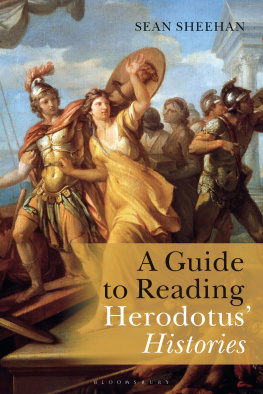
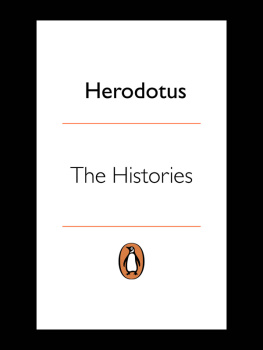
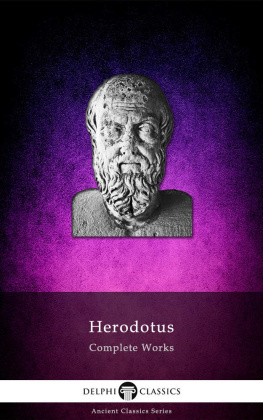
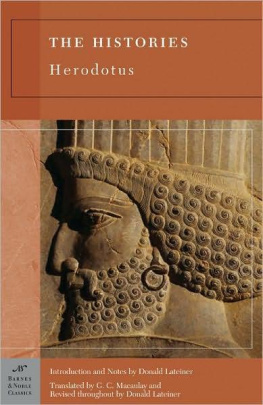
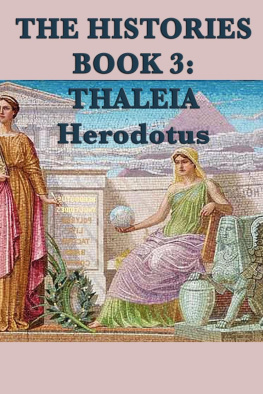
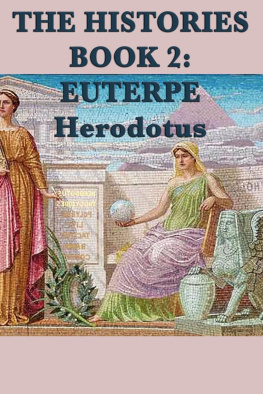

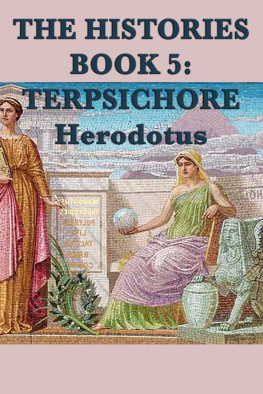
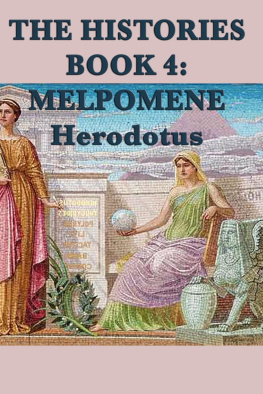
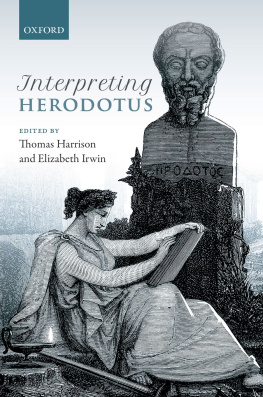
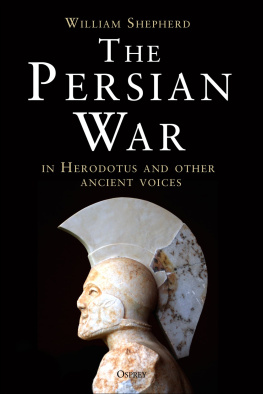
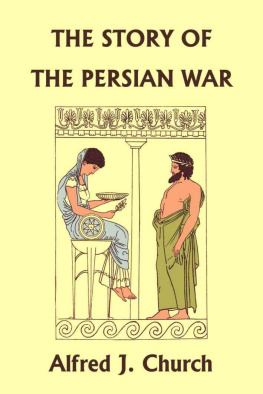
 The paper used in this publication meets the minimum requirements of the American National Standard for Information SciencesPermanence of Paper for Printed Library Materials, ANSI Z39.48-1992.
The paper used in this publication meets the minimum requirements of the American National Standard for Information SciencesPermanence of Paper for Printed Library Materials, ANSI Z39.48-1992.
